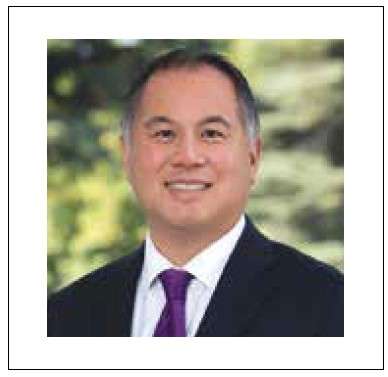
By Phil Ting —
The to-go packaging that contains your burger, fries, or other prepared food items is now safer. That’s because my bill AB 1200 took effect this month, banning PFAS, or perfluoroalkyl and polyfluoroalkyl substances, from those wrappers and boxes, which are used to keep grease and other liquids from leaking out. But when PFAS come into contact with our food, we have been ingesting them.
PFAS are a class of roughly 9,000 man-made chemicals linked to a host of health problems that include cancer, hormone disruption, thyroid disease and vaccine interference. In addition, when the food waste and packaging end up as litter, the harmful substances also end up in the environment. Either way, they take a long time to break down, making them persistent in our bodies and surroundings. That’s why PFAS are often referred to as “forever chemicals.” Companies must now use safer alternatives, as required by my legislation.
I felt compelled to start tackling PFAS in 2017 when Clean Water Action and the Environmental Working Group presented the issue to me. Unfortunately, we weren’t able to move that first effort forward, but San Francisco’s Department of Environment addressed the issue locally in 2018. Finally, as AB 1200 went through the state’s legislative process, people became more aware – even angry – about this growing nuisance. Our debates on my bill sparked momentum and even more conversations nationwide about how to reduce our exposure to PFAS. In many cases, other jurisdictions have intervened to reign in PFAS use.
The most significant response has come from 3M, one of the biggest producers of PFAS. The company recently announced it will stop making forever chemicals by the end of 2025. The news is both exciting and a relief. I sought public office because I wanted to bring about change and improve the lives of Californians. For a big conglomerate to alter its behavior – one that’ll impact profits by $1.3 billion to $2.3 billion – is remarkable. Their decision has the potential to have rippling impact on products.
While I support 3M’s move, I applaud companies that don’t wait for regulations to do the right thing. Even before AB 1200 took effect, for example, McDonalds, Taco Bell, Chipotle, Panera Bread, Whole Foods and Trader Joe’s were already phasing out PFAS-laced wrappers, boxes and the like, or have pledged to do so. And such commitments for large users of food packaging likely contributed to 3M’s decision.
Further pushing the nail into the PFAS coffin is my bill from last year, AB 1817, a follow-up to AB 1200. California becomes the first state to ban the use of PFAS in fabrics, which are added to things like upholstery and clothing to make them stain resistant. They also make outdoor gear, like raincoats and hiking boots water repellent.
Again, there are safer alternatives available right now that work equally well. New York is also following our lead, banning PFAS in clothing. Our law won’t take effect until 2025, but it can’t start soon enough. A recent study by the Green Science Policy Institute found high concentrations of PFAS in school uniforms sold in the United States and Canada. This is concerning because children wear them for about eight hours a day, absorbing the chemicals through their skin. I hope manufacturers see they don’t have to wait two years to make their products safer today.
As I put together my legislative agenda for this year, I am looking at more ways to end the use of PFAS. We must get these awful chemicals away from us as much as possible before even more damage to our health and environment is done.
Phil Ting represents the 19th Assembly District, which includes the west side of San Francisco along with the communities of Broadmoor, Colma, and Daly City as well as part of South San Francisco.
Assemblymember Phil Ting
Published on January 12, 2023
Recent Comments